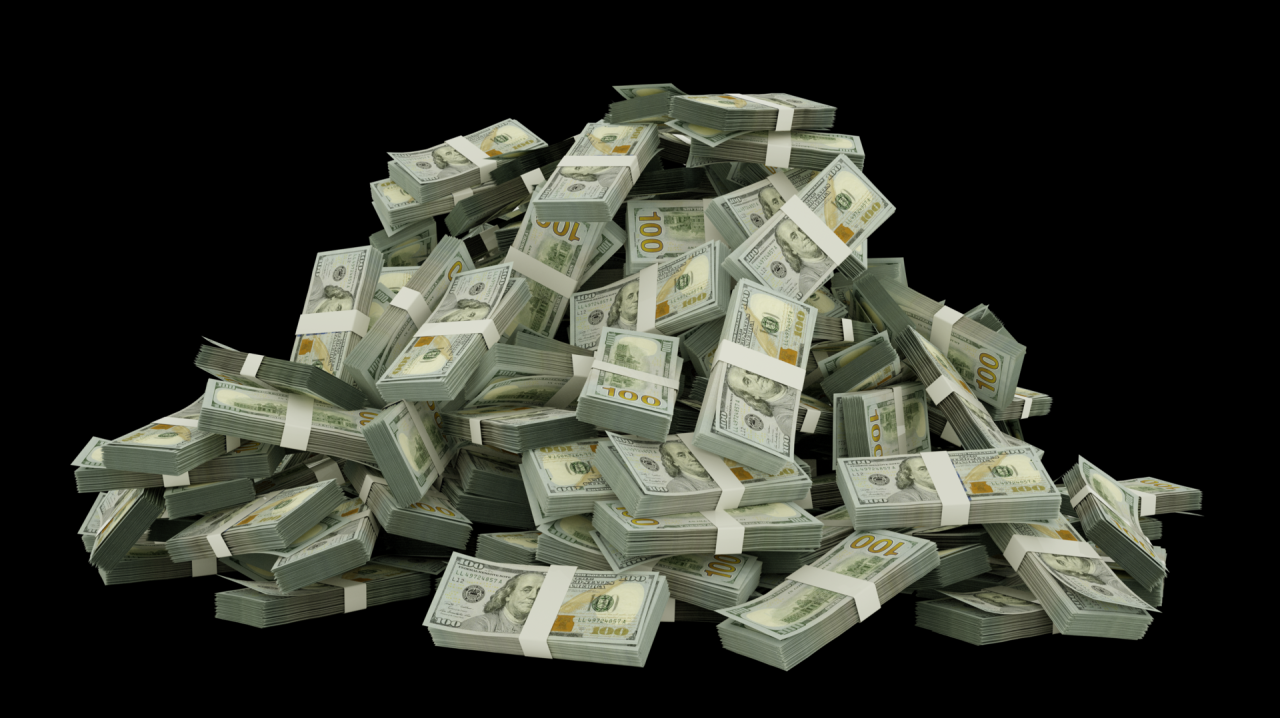Money, in its myriad forms, is arguably the most universal construct of human civilization. It transcends borders, facilitates trade, and shapes societies, acting as a fundamental medium of exchange, a unit of account, and a store of value. Yet, while the concept of money is universally understood, the words we use to describe it are as diverse and rich as the cultures that coin them. Delving into the linguistic tapestry of money reveals not only fascinating etymological journeys but also profound insights into the historical, social, and cultural values attached to wealth, debt, and economic exchange across the globe.
This article explores the captivating world of money through the lens of language, uncovering the origins of its names, the cultural nuances embedded within its terms, and the evolving lexicon of a globalized, digital economy.
I. The Deep Roots: Etymological Journeys of Currency Names
Many of the world’s major currencies carry names whose origins whisper tales of ancient practices, materials, and power structures.
A. Echoes of Antiquity: Cattle, Weight, and Roman Influence
One of the most enduring etymological links for money points to cattle. The Latin word "pecunia" (money) is derived from "pecus" (cattle), highlighting a time when livestock served as a primary form of wealth and exchange. This root is still visible in English words like "pecuniary," referring to matters of money.
The Roman Empire’s influence is particularly pervasive. The English word "money" itself stems from the Latin "Moneta," one of the epithets of the goddess Juno, whose temple on Rome’s Capitoline Hill housed the mint. The word "mint" also derives from this association.
Several currencies are named after units of weight, reflecting their historical origin as precise measures of precious metals.
- Pound (GBP): The British Pound Sterling, like the Italian Lira (from Latin libra) and the Spanish/Mexican Peso (from Latin pensum), all literally mean "weight." Historically, a pound sterling referred to a pound weight of sterling silver.
- Mark (German Mark, Finnish Markka): This Germanic word also signifies a unit of weight, often used for gold or silver.
- Rubel (RUB): The Russian Rubel’s name is thought to derive from the Russian verb "rubit" (to chop), referring to the practice of cutting off a piece from a silver ingot.
The "Dollar" (USD) has a fascinating European lineage. It originates from the German "Joachimsthaler," a silver coin minted in the early 16th century from silver found in a mine in Joachimstal (Joachim’s Valley) in Bohemia. "Thaler" became a widely used term for large silver coins across Europe, eventually evolving into "dollar" through Dutch and English usage, spreading to the American colonies.
B. Precious Metals and Distinctive Shapes
The names of many currencies directly reference the precious metals from which they were initially minted or the form they took.
- Rupee (INR): The Indian Rupee comes from the Sanskrit word "rupya," meaning "wrought silver" or "a coin of silver."
- Yuan (CNY), Yen (JPY), Won (KRW): These East Asian currencies share a common Chinese character (圓 / 圆) which means "round object" or "circle." This refers to the round shape of the coins that replaced earlier forms of currency like cowrie shells or knife money. The Chinese currency is officially called "Renminbi" (RMB), meaning "the people’s currency," with the Yuan being its basic unit.
- Dinar (various Arab countries): This name is a direct descendant of the Roman "denarius," a silver coin, itself derived from "deni" (containing ten), referring to its value of ten asses.
- Dirham (various Arab countries): Similar to the Dinar, the Dirham derives from the Greek "drachma," another ancient silver coin.
C. Names Reflecting National Identity and Purpose
Some currency names are more recent, reflecting national identity or the explicit purpose of the currency.
- Franc (Swiss Franc, formerly French Franc): The French Franc was named after the Latin inscription Francorum Rex (King of the Franks) on early coins, or possibly from franc meaning "free," referring to the freedom from foreign rule.
- Krona / Koruna / Krone (Sweden, Iceland, Czech Republic, Denmark, Norway): These all mean "crown," signifying a monarchical connection and often depicting a crown on the coins themselves.
- Baht (THB): The Thai Baht was historically a unit of weight for gold and silver, but also evolved to denote the currency, originally equal to a Tical (another unit of weight).
II. Beyond Etymology: Cultural Nuances and Perceptions of Money
Beyond their literal origins, the words for money often carry implicit cultural baggage, reflecting societal attitudes towards wealth, debt, and economic activity.
A. Wealth and Prosperity
In English, "wealth" implies well-being and abundance, stemming from an Old English word meaning "well-being" or "happiness." "Rich" suggests having power or resources.
- The German word for money, "Geld," is quite neutral, stemming from a root meaning "payment." However, the concept of "Vermögen" (wealth, assets) is derived from "vermögen" (to be able, to have the ability), suggesting that wealth is tied to capability and accumulated property.
- In French, "argent" (money) also means "silver," highlighting the historical value of the metal. French culture often associates money with status and the ability to enjoy life’s finer things.
- The Chinese term "Cái fù" (财富) for wealth literally combines "talent/ability/money" (财) with "luck/fortune" (富), suggesting a blend of effort and destiny.
B. Debt and Obligation
Perhaps one of the most famous examples of cultural embedding is the German word "Schuld." It means both "debt" and "guilt" or "fault." This linguistic overlap highlights a profound connection in German culture between financial obligation and moral culpability, suggesting that being in debt is not merely an economic state but also carries a moral weight. This contrasts with English, where "debt" and "guilt" are distinct concepts, though "owing" can have a moral dimension.
C. Slang and Informal Terms
Every language boasts a rich lexicon of informal terms for money, reflecting familiarity, humor, or sometimes disdain. These slang terms often arise from specific contexts or shared cultural references.
- In English, we have a plethora: "dough," "bread," "bucks," "moolah," "loot," "greenbacks," "wad," "clams," "scratch," "fiver," "tenner," "grand." These terms often refer to the physical appearance of money (greenbacks), the food it buys (bread, dough), or simply informal placeholders.
- In Spanish, "plata" (silver) is a common colloquial term for money, especially in Latin America, akin to "argent" in French. Other terms include "pasta" (dough/paste) in Spain, or "guita" (string/twine) in Argentina.
- In French, beyond "argent," one might hear "fric" (slang for money, possibly from a root meaning ‘to rub’ or ‘to make noise’) or "blé" (wheat, similar to English ‘bread’).
- Japanese slang includes "okane" (money, formal) but also "zenī" (from English "zeni" or "money") or "geema" (a playful reversal of "money").
- These informal terms often reveal a culture’s more relaxed or even irreverent relationship with money, contrasting with the formal terms used in official contexts.
D. Proverbs and Idioms
The wisdom and anxieties surrounding money are encapsulated in countless proverbs and idioms worldwide.
- "Time is money" (English) – a reflection of capitalist efficiency.
- "Money talks" (English) – power and influence.
- "Geld regiert die Welt" (German: Money rules the world).
- "L’argent n’a pas d’odeur" (French: Money has no smell) – often attributed to Vespasian, meaning that the source of money is irrelevant once it is earned.
- "お金は天下の回りもの" (Japanese: Money is a thing that circulates throughout the world) – emphasizing its transient nature.
These sayings demonstrate how deeply money is woven into the fabric of cultural thought and everyday expression.
III. The Modern Era: Globalization, Digitalization, and the Future of Money’s Lexicon
The 21st century has brought unprecedented changes to the world of money, with globalization fostering linguistic convergence and digitalization introducing entirely new terminologies.
A. The Lingua Franca of Finance
English has firmly established itself as the global lingua franca of finance. Terms like "bank," "cash," "credit," "debt," "investment," "market," and "economy" are widely understood and often borrowed directly into other languages, sometimes with slight phonetic adaptations (e.g., "bank" in many languages, "kredit" in German, "kurejitto" in Japanese). This reflects the dominance of English-speaking financial centers and institutions in shaping global economic discourse.
B. The Digital Revolution and New Lexicons
The advent of digital currencies and financial technologies has birthed an entirely new vocabulary, much of which is global from its inception.
- Cryptocurrency: A term that has quickly become universal, alongside specific coin names like "Bitcoin," "Ethereum," "Litecoin."
- Blockchain: The underlying technology, also a globally recognized term.
- Wallet: Digital wallets, e-wallets.
- Mining, Staking, NFT: These terms bypass traditional linguistic evolution, becoming instantly globalized due to the borderless nature of the digital realm.
While these terms originate predominantly from English-speaking tech communities, their conceptual understanding and usage are rapidly spreading across all languages, often without direct translation but through direct adoption.
C. Blending and Borrowing
The linguistic landscape of money is constantly evolving through borrowing and blending. As cultures interact, words for money, financial instruments, and economic concepts flow across borders. This dynamic process enriches each language, reflecting the interconnectedness of the global economy. For instance, while Japan has its own word for money ("okane"), it readily adopts English terms like "cash card" or "ATM."
Conclusion
The journey through the words for money across different languages is a fascinating exploration of human history, ingenuity, and cultural diversity. From the ancient echoes of cattle and precious metals to the modern lexicon of cryptocurrencies, each term tells a story. These stories reveal shared human experiences – the need for exchange, the desire for security, the pursuit of prosperity – but also highlight the unique values and historical paths that have shaped individual societies.
Ultimately, while the names for money may vary dramatically from "Pound" to "Yuan," "Dinar" to "Dollar," the fundamental concept remains universal: a tool to facilitate the exchange of value, enabling societies to organize, grow, and thrive. In this sense, money, despite its myriad names, truly speaks a universal language, reflecting the intricate tapestry of human civilization in all its economic and linguistic splendor.


